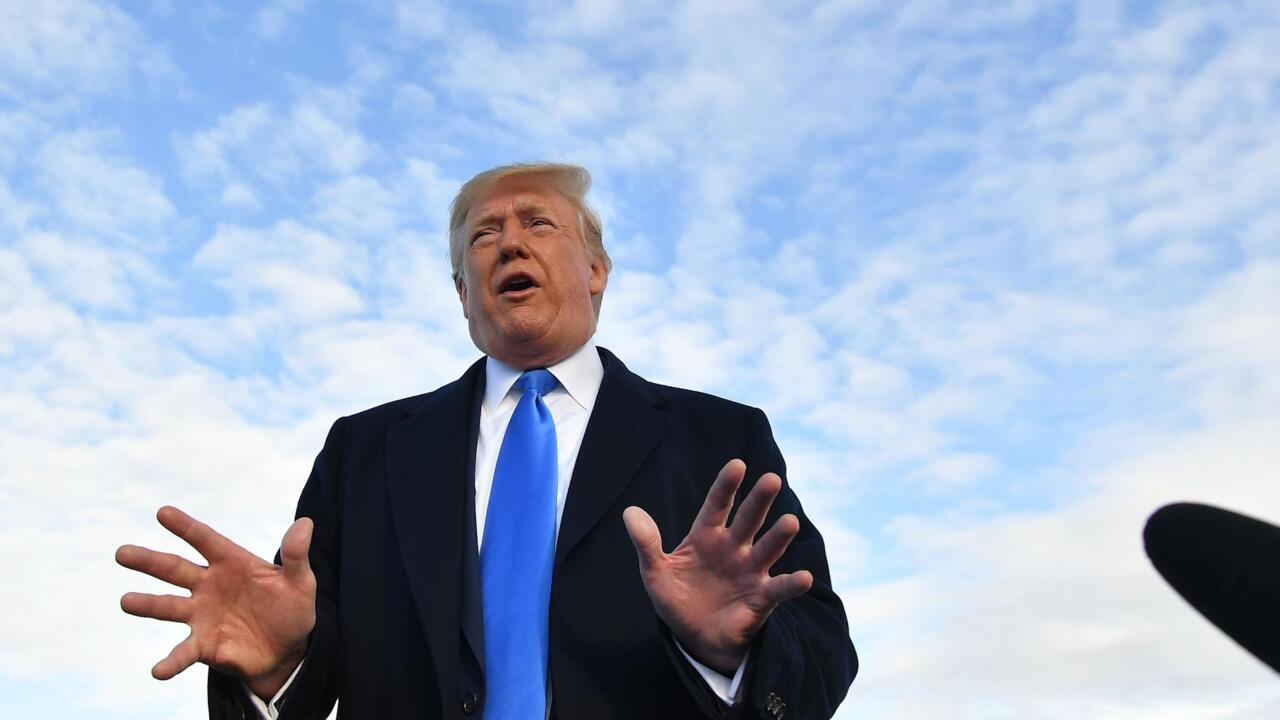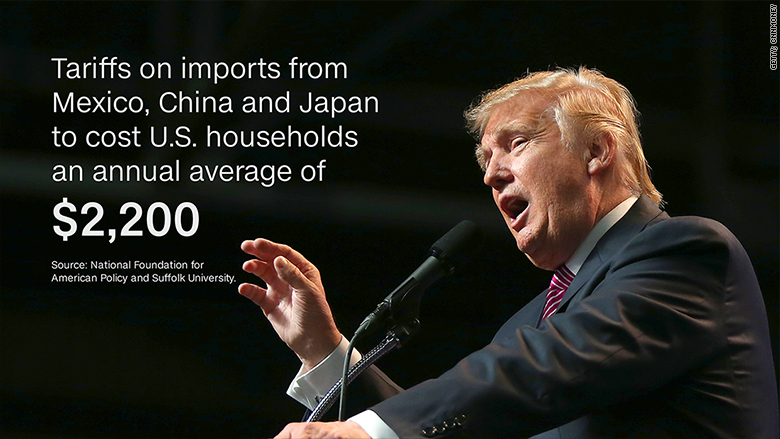Trump’s Tariff Delay: A Month-Long Reprieve: Trump Delays Tariffs On Mexico And Canada For One Month
President Trump’s decision to delay the implementation of tariffs on Mexican and Canadian goods for one month sent ripples throughout North America, impacting economies, politics, and international relations. This temporary reprieve offers a brief window to analyze the potential short-term and long-term consequences of this trade policy shift.
Economic Impacts of the Tariff Delay

The one-month delay provided immediate relief to businesses and consumers across the three nations. In the short-term, the US avoided potential price increases on imported goods from Mexico and Canada, mitigating inflationary pressures. Mexico and Canada, on the other hand, experienced a temporary reprieve from potential economic downturns resulting from decreased export demand. However, the long-term consequences are less certain. Continued uncertainty surrounding trade relations could negatively affect investment and economic growth in all three countries. The delay could also be interpreted as a negotiating tactic, potentially leading to further trade negotiations and the eventual implementation of tariffs if a satisfactory agreement isn’t reached.
| Country | Short-term Impact | Long-term Impact | Overall Assessment |
|---|---|---|---|
| United States | Avoided immediate price increases; reduced inflationary pressures. | Uncertainty remains; potential for future tariffs and trade disputes; impact on investment and growth depends on final trade agreement. | Short-term positive, long-term uncertain. |
| Mexico | Temporary relief from decreased export demand; avoided immediate economic downturn. | Uncertainty impacts investment and growth; potential for long-term economic damage if tariffs are implemented. | Short-term positive, long-term negative potential. |
| Canada | Similar to Mexico; temporary relief from decreased export demand. | Uncertainty impacts investment and growth; potential for long-term economic damage if tariffs are implemented. | Short-term positive, long-term negative potential. |
Political Ramifications of the Decision

Trump’s decision to delay the tariffs can be interpreted through several political lenses. Domestically, it could be seen as a response to pressure from businesses and consumers concerned about the economic impact of tariffs. Internationally, the delay might signal a willingness to renegotiate trade agreements, although it could also be viewed as a strategic maneuver to gain leverage. The delay’s impact on the upcoming elections is uncertain; it could either benefit or harm Trump depending on how voters perceive the decision. Future trade negotiations will likely be influenced by the outcome of this temporary delay.
- Potential Political Gains for Trump: Appearing flexible, avoiding immediate negative economic consequences before the election.
- Potential Political Losses for Trump: Appearing weak, failing to deliver on promised trade protectionism.
- Potential Political Gains for Democrats: Highlighting the negative economic impacts of Trump’s trade policies.
- Potential Political Losses for Democrats: Appearing obstructionist to trade negotiations.
- Potential Political Gains for Mexican and Canadian Governments: Buying time for negotiations, avoiding immediate economic hardship.
- Potential Political Losses for Mexican and Canadian Governments: Appearing weak in the face of US pressure.
Impact on Specific Industries
Industries heavily reliant on trade between the US, Mexico, and Canada were most significantly affected. The automotive industry, for example, experienced significant uncertainty. The delay lessened the immediate impact on employment in these sectors, but the long-term outlook remains dependent on the final outcome of trade negotiations. Businesses initially reacted with alarm to the tariff announcement, but the delay provided some relief, allowing them to reassess their strategies and potentially lobby for more favorable trade agreements.
A visual representation would show a bar graph comparing the relative impact across different sectors (automotive, agriculture, manufacturing) in each country. The bars would reflect the initial negative impact of the tariff announcement, followed by a reduction in negative impact due to the delay, with the final height of the bars still reflecting uncertainty about the future. For instance, the automotive sector in all three countries would likely show a large initial negative impact, followed by a slight reduction after the delay, with the ultimate height remaining significantly lower than the pre-announcement baseline.
International Relations and Trade Agreements
The tariff delay significantly impacted US relations with Mexico and Canada. It created a temporary pause in escalating trade tensions, but the underlying issues regarding the USMCA and trade imbalances remain. The delay’s impact on the USMCA is uncertain; it could lead to renewed negotiations or a further deterioration of the agreement’s effectiveness. Future trade disputes are possible if the underlying issues aren’t resolved.
- January 2020: USMCA comes into effect.
- May 2023: Trump announces tariffs on Mexican and Canadian goods.
- June 2023: Trump delays tariffs for one month.
- July 2023: Further negotiations and discussions between the three countries.
Public Opinion and Media Coverage, Trump delays tariffs on Mexico and Canada for one month

Public opinion varied across the three countries. In the US, opinions were divided, with some supporting Trump’s protectionist stance and others concerned about economic repercussions. In Mexico and Canada, the initial reaction was largely negative, with concerns about economic stability and US-led trade disruptions. Media coverage reflected these diverse opinions. Some outlets framed the delay as a sign of Trump’s willingness to compromise, while others viewed it as a temporary measure to avoid immediate political backlash.
| News Outlet | Country of Origin | Stance on the Tariff Delay |
|---|---|---|
| The New York Times | United States | Cautiously optimistic, highlighting ongoing uncertainty. |
| The Globe and Mail | Canada | Concerned about long-term implications, despite short-term relief. |
| El Universal | Mexico | Skeptical, emphasizing the potential for future tariffs. |


